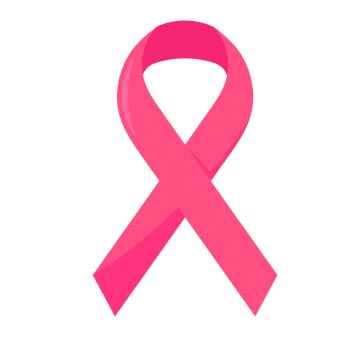Survivorship Care and Breast Cancer Treatment
At the UF Health Proton Therapy Institute, all patients, including people being treated for breast cancer, begin survivorship care from the moment they are diagnosed and begin planning their treatment. “Survivorship care is about improving quality of life and maintaining quality of care,” explains Teena Burchianti, MSN, APRN, ANP-BC, OCN®.

Teena collaborates with the radiation oncologists in the assessment, evaluation, and treatment of patients during and after proton therapy. Offering a helping hand during and after breast cancer treatment is Teena’s passion.
As breast cancer patients move through cancer treatment at the Institute, Teena and the breast cancer team are caring for patients with the goal of helping patients live life to the fullest. From diagnosis to treatment to life after treatment, this care is provided under the umbrella of survivorship. Teena explains that survivorship care is woven into the entire cancer journey.
Teena shares further that survivorship care has always been a part of cancer care, but recently, the medical community has begun calling it by this name. At the Institute, survivorship care is an integral part of a patient’s treatment plan.
During treatment, survivorship care specifically entails follow-up with patients in clinical trials, managing side effects and supporting patients and their families throughout and beyond treatment. It is about making them feel cared for, answering their questions and connecting them with social workers, mental health professionals and other referral services when needed.
After breast cancer treatment, survivorship care includes helping patients manage side effects of hormonal therapy, minimizing the risk of recurrence, suggesting tools and procedures to reduce scar tissue, screening for lymphedema and connecting patients to community support groups.
The Institute has its own bioimpedance machine that helps diagnose lymphedema. The machine allows for early detection and treatment, which Teena and the support staff recommend for breast cancer patients. Treatment options include massage, physical therapy, and occupational therapy. One unique option to improve lymphedema symptoms is stretching and muscle strengthening through exercise, and this can include dragon boat racing as one breast cancer survivor recently shared.
Another unique component of survivorship care at the Institute, explains Teena, is its goal to treat the whole patient, including emotional health, mental health, physical health and caring for the patient’s caregivers. A nurse practitioner is a central point of contact at the Institute that assesses care each step of the way and can refer the patient to specialists as needed.
“The benefit of amplifying survivorship care in a patient’s cancer journey is offering an integrated approach to care, which often leads to less complications during and after cancer treatment,” said Teena. She added her goals are always to improve patient care, minimize anxiety and teach her patients to live fully.
Learn more about breast cancer treatment at the UF Health Proton Therapy Institute. The Institute has a comprehensive proton therapy breast cancer team of physicians, nurses, a social worker and a nurse practitioner, all supported by the main staff of referral coordinators, finance specialists, intake personnel, physicists, dosimetrists and more — all working together to identify patients' needs and provide excellent care.

